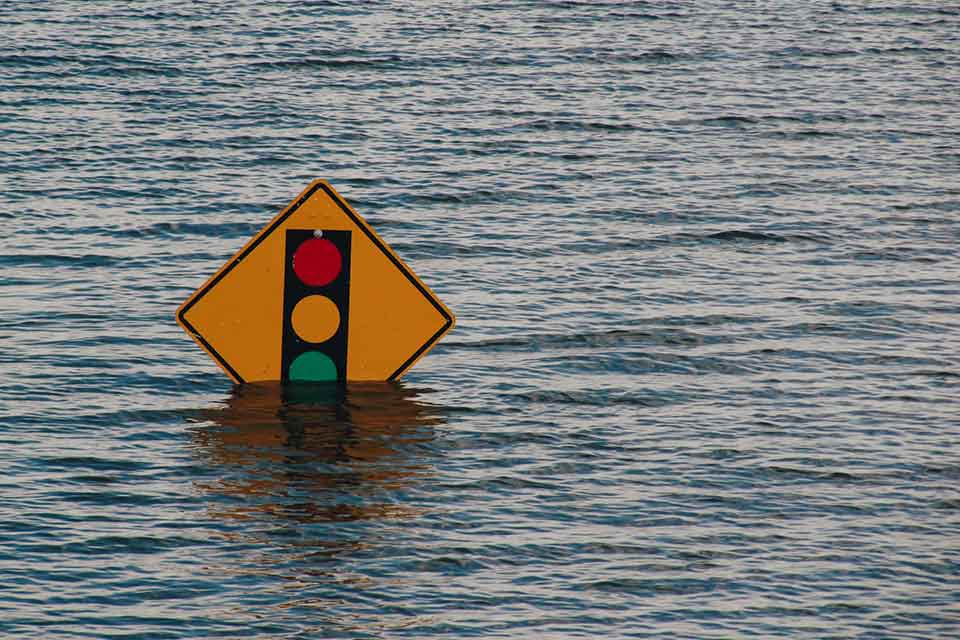Jem Bendell is a known scholar on societal collapse who rose to prominence in 2018 with his academic paper Deep Adaptation: A Map for Navigating Climate Tragedy. Discussed in popular media and academia, the paper has been downloaded more than a million times since its release, which is a truly impressive number for an academic publication. Bendell concluded that it was too late to avert severe and massively destructive climate change and proposed a framework for preparing for an imminent societal collapse with four guiding themes—resilience, relinquishment, restoration, and reconciliation—to help make sense of the unfolding tragedy and discover personal and collective changes that might soften the fall. It validated the intuitions of thousands of people already anxious about the state of the world and seeing no credible way out of the downward spiral, inspiring Extinction Rebellion and leading to the formation of a movement called “Deep Adaptation.”
But Bendell encountered intense opposition in the mainstream media. He faced accusations of being unscientific, defeatist, and counterproductive. Rather than being crushed by these indictments, Bendell was motivated to defend his conclusions, deepen his knowledge of the impending collapse, and rescue more people from losing precious time or falling prey to panicked manipulations. The result of his efforts is Breaking Together: A Freedom-Loving Response to Collapse (Good Works, 2023), a slow and heavy read that will, at times, make readers’ hearts pound and quicken their breath.
Bendell devotes seven whole chapters, or about half of his new book, to updating readers on the crumbling foundations of our civilization and building the argument that we are already living in the midst of the “uneven ending of industrial consumer modes of sustenance, shelter, health, security, pleasure, identity and meaning” or, in other words, the collapse of the “industrial consumer society,” which incorporates billions of people reliant on industrially produced and traded goods and services. Presenting extensive research done by an interdisciplinary team on rapid and irreversible changes—disintegrating biosphere, erratic climate and decaying food, economic, monetary, and energy systems—he provides a solid evidence base for urgent action on collapse readiness and response. Bendell clarifies that societal collapse is a process, not an event, but he estimates that it will seriously disrupt the lives of most people by the end of this decade (albeit in varied forms and degrees of intensity).
Bendell clarifies that societal collapse is a process, not an event, but he estimates that it will seriously disrupt the lives of most people by the end of this decade.
The second half of the book is devoted to the question of what can be done with that awareness. One of Bendell’s biggest worries is that, as societies disintegrate, we are becoming increasingly frightened and angry, which, in turn, gives rise to misanthropic feelings about the nature of humanity and calls for simplistic authoritarian responses to the mounting problems on multiple fronts. Case in point: progressively loud voices in the environmental movement advocating for decisive government action in limiting human freedoms “for their own good” to address climate change. Bendell dismisses the idea entrenched in the mainstream environmental movement that humans are an inherently destructive force, devoting a whole chapter to overview the multiple examples of previous human cultures living in self-sustaining relationships with nature without degrading it. In fact, Bendell sees the idea of us being something other, and better, than nature as one of the deeper causes of our current predicament. Another, related, cause is the imperative for economic expansion that is built into modern money systems and dominant ideologies. Therefore, breaking free from old identities and worldviews is necessary if we want to lessen suffering and “enable more joy, creativity and transcendence” in the years that are left to us.
Thus Bendell’s answer to the breakdown is not less but more freedom, decentralization, and experimentation with gentler ways of living on Earth. He suggests we should direct our attention not to calling for top-down approaches but to political action that preserves our freedom to think and act without coercion or manipulation and to building resilient communities—restoring commonly owned resources and networks, so that our main needs can be met outside of state or market facilities.
Bendell’s insights stem not just from data but also from his own experience working in the field of sustainability, which makes him aware of blind spots and shortcomings of the people supposedly in charge of addressing the systemic challenges facing civilization. Prior to becoming a harbinger of doom, Bendell had spent two decades trying to harness the power of business and finance to create an environmentally sound future, in his roles as professor of sustainability and as a consultant for various businesses and organizations, including the United Nations and WWF International. The World Economic Forum, famous for its Davos summit, even recognized Bendell as one of the Young Global Leaders in 2012. It is therefore remarkable that in Breaking Together, Bendell wholeheartedly rejects the corporate sustainability agenda and instead invites readers to let go of false hopes so that they “can move through grief, and begin living creatively again, with an awareness of how every day is a blessing.”
It is not necessary to agree with Bendell that collapse is inevitable or to accept all the arguments and opinions he expresses in this extensive book to take his warnings seriously. As it is getting increasingly clear to most people that suffering in our societies is growing and the wider web of life is disintegrating, we would be wise to pay attention.
Vilnius
